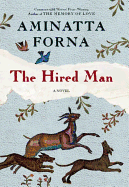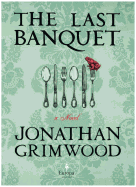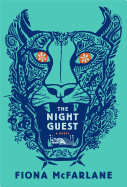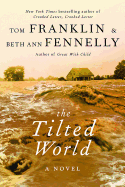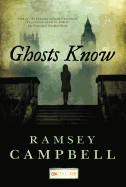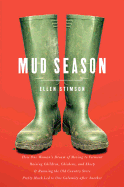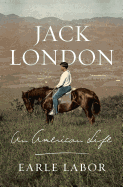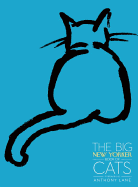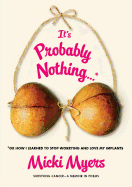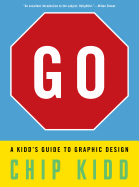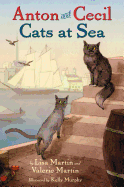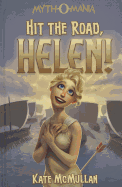 Everyone has had "the dream" while on vacation and asked: What if I lived here? Ellen Stimson answered with a resounding, life-altering: Yes! "I come from a long line of overreactors," she writes in her new book, Mud Season: How One Woman's Dream of Moving to Vermont, Raising Children, Chickens and Sheep, and Running the Old Country Store Pretty Much Led to One Calamity After Another (see review below).
Everyone has had "the dream" while on vacation and asked: What if I lived here? Ellen Stimson answered with a resounding, life-altering: Yes! "I come from a long line of overreactors," she writes in her new book, Mud Season: How One Woman's Dream of Moving to Vermont, Raising Children, Chickens and Sheep, and Running the Old Country Store Pretty Much Led to One Calamity After Another (see review below).
Stimson and her family moved from St. Louis to a "quintessential New England town" in Vermont, bought a "perfect" old farmhouse that, "with just a few renovations... would be a start to our new, magnificent Vermont lives," and then sealed their idyllic fate by taking over the town's "Lovely Quaint Country Store," which soon became HQCS (Horrible Quaint Country Store). Did they live happily ever after in their Green Mountain paradise? Well, not exactly, but what kind of book would that make anyway?
Your opening line is: "Falling in love makes you do strange things." Do you think the experiences chronicled in Mud Season have changed that for you?
Are you kidding me? I still get big goofy crushes all the time. Right now I am in love with this whole storytelling business. As a result, I am going on a book tour, which, believe me, is not a thing regular normal people do. It is, however, a thing a girl who has always been drunk on booklove does with enormous pleasure. Two months in bookstores with book people? Get out! It's like winning the lottery.
You note that you "have always been able to see a way to build businesses." Would the phrase "love is blind" describe how that ability was shortcircuited by Peltier's country store?
Blind, bedazzled, deaf, drunk, bewitched--take your pick.
Everyone on vacation has thought more than once: "What if we lived here?" Your book describes what happened when you took that next step for real. Any advice?
Do it. The life of our family became in all ways bigger as we chased that dream. (You might want to skip the whole buying the beloved town monument thingy, however.)
"Vermont is a strange place. Being a 'real Vermonter' is important," you write. In the 1950s and 1960s, I grew up in a Vermont that was almost annoyingly "local," occupied by far more "real Vermonters" than flatlanders. So, what is a Vermonter now? To what extent is Vermont a state vs. a state of mind?
I thought I could be a Vermonter on my first trip here back in 1994. It felt like I'd come home. Of course, real Vermonters are calm and sensible. They would have never bought the store. They know better. They tend toward a wry view of those other zany Americans out there. Especially when they decide to move here.
Real Vermonters use only the words that they need. So if you're the source of gossip, it's probably pretty juicy. But they form a community. They will dig your car out of a snow bank or jump out of the truck to cut up a tree in the road without thinking twice.
Real Vermonters take the long view. You may be just sure you need that wood delivered today--right now! Hurry! This minute! Because there's this party and the lovely fire you are imagining after dinner is going to be great. But these folks know that you will need it for something else next week and so your breathlessness will not make your imagined emergency their priority.
On the other hand, if your power goes out in January and you are out of wood, they will dig themselves out of a blizzard to get you wood at four in the morning. The decorative fire might not have been important, but taking care of a neighbor's family in winter sure is. Vermonters may not just love pedicures or lipstick but, by God, they are reliable.
Vermont practically invented independent politics. So they may not like high taxes but you can damn well marry anybody you want, and if you are Dick Cheney, you might want to think twice about leaf peeping up here, since they likely indicted you for war crimes at town meeting. These are my people now, and I love them fiercely. (Even as I remain devoted to lipstick and pedicures and the occasional decorative fire in the library)
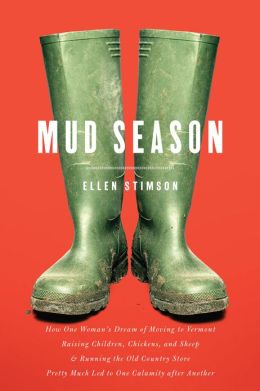 You often use the words "imagine" and "envision" in Mud Season when you recall getting ready to make important decisions. Then you deal with the consequences. Are dashed expectations a renewable resource for you?
You often use the words "imagine" and "envision" in Mud Season when you recall getting ready to make important decisions. Then you deal with the consequences. Are dashed expectations a renewable resource for you?
I sort of see everything in life as either the wonderful or the horrible-that's-just-waiting-to-be-a-funny-story. I mostly tend to get something good one way or the other.
What are your favorite Vermont-themed reads?
The Yellow Farmhouse Cookbook is one of my very favorite cookbooks. "My" famous buttermilk biscuits actually came from there. (Shh... don't tell my kids.) Novels like Crossing to Safety, The Secret History and Songs in Ordinary Time all feature Vermont as a character, which make them richer experiences for me. And I love, love, love the old church cookbooks. I pick them up at book sales all the time.
If you could change one thing about Vermont--and I mean a wholesale, as-if-it-was-never-like-that-in-the-first-place aspect of the state--what would it be?
I would make spring come in April like it's supposed to. Easter egg hunts should happen amongst jonquils, not knee-deep snow, for God's sake.
What advice would you give to someone who's thinking about moving to the state, besides bring lots of money with them?
Vermont is perfect just the way it is. That's why you came here, remember? Love it. Don't try to make it more like where you came from. There are no streetlights but we have stars. Yes, those white houses with green shutters are restrictive. But that's why it looks like a New England postcard. Okay, maybe there is one exception. We could use a few more nail salons so I'd vote yes if you want to open one of those. Just sayin'.
You recently sold your next book, Good Grief!, to Norton. What's it about?
It's what comes next in our Vermont story. If Mud is about the unexpected (though entirely predictable in hindsight) consequences of pursuing your dreams with joy and humor, then Grief explores the unexpected (and completely unpredictable even with 20/20 hindsight) consequences of parenting teenagers through the same funny lens. Also, there are dogs, loons, occasional inappropriate peeing and tiny little housefires. I love surprises--and good thing, too. Having teenagers means you get surprises on a whole new level. I mean, you can't make this stuff up. I had one kid who jumped naked out of a window to get to a girl. Good Grief! is that moment right after you foolishly say, "What next?" --Robert Gray, contributing editor
Ellen Stimson: 'In Love with this Whole Storytelling Business'
 One of our favorite lines in the book is the statement, "Everything that is not made by nature is designed by someone."
One of our favorite lines in the book is the statement, "Everything that is not made by nature is designed by someone." 


 Everyone has had "the dream" while on vacation and asked: What if I lived here? Ellen Stimson answered with a resounding, life-altering: Yes! "I come from a long line of overreactors," she writes in her new book, Mud Season: How One Woman's Dream of Moving to Vermont, Raising Children, Chickens and Sheep, and Running the Old Country Store Pretty Much Led to One Calamity After Another (see review below).
Everyone has had "the dream" while on vacation and asked: What if I lived here? Ellen Stimson answered with a resounding, life-altering: Yes! "I come from a long line of overreactors," she writes in her new book, Mud Season: How One Woman's Dream of Moving to Vermont, Raising Children, Chickens and Sheep, and Running the Old Country Store Pretty Much Led to One Calamity After Another (see review below). You often use the words "imagine" and "envision" in Mud Season when you recall getting ready to make important decisions. Then you deal with the consequences. Are dashed expectations a renewable resource for you?
You often use the words "imagine" and "envision" in Mud Season when you recall getting ready to make important decisions. Then you deal with the consequences. Are dashed expectations a renewable resource for you?